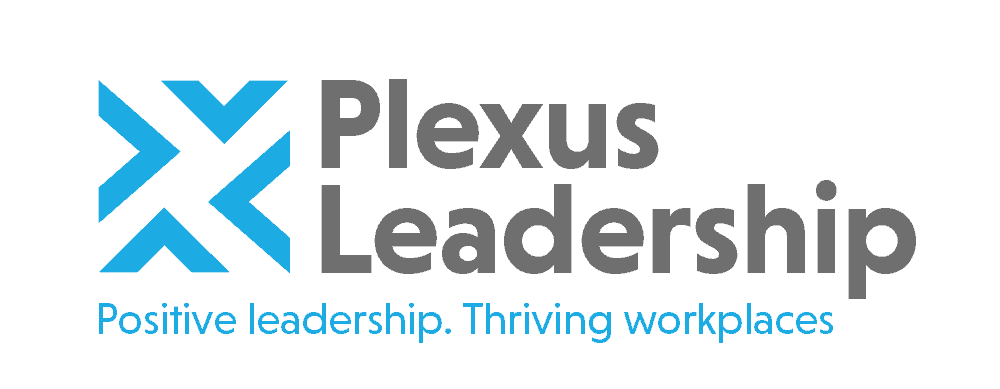Part 2 : Supporting your customers during the COIVD-19 crisis
This crisis is proving to be a significant test of the strength of trust and quality of relationships companies have with their customers. It is not so much a passing “moment of truth”, but rather a momentous and transformative period that will determine whether businesses are able to maintain their brand loyalty, retain customers and continue to trade during the long recovery ahead.
A trusted partner relationship with a customer is one characterised by reliability, honesty and strong emotional connection. You not only need to earn a customer’s trust, but also maintain it during the toughest of times such as the one we’re experiencing now. Clearly, for some companies the virus has led to an unavoidable ‘pause’ in their ability to serve customers. This is especially true for retail companies and those in the leisure and hospitality industry where many have had little option but to shut-down and furlough or reduce their workforces. However, even these companies can take measures to ensure they stay connected with their customers during the lockdown. I saw a good example of this in my village where a local optician had posted an eye-catching notice about the temporary closure of their business. In the notice the owner made a very personal and relatable point that the first few weeks of the lockdown had been tough for the family as they are home-schooling their kids. The note ended with an optimistic (and somewhat humorous) remark that they can’t wait to get back to work once the lockdown is lifted. It also provided a contact number for customers to call if they require urgent assistance.
Below are some key principles businesses can follow to maintain a strong brand and customer loyalty during this pandemic.
Maintain clear, honest communication
Every company needs to ensure it has a clear external communication strategy led by the top team (or crisis management team if the organization has one), ideally with the input of a professional communications specialist. This should inform customers about any temporary suspension of business, as well as providing proactive advice about service or delivery delays, including changes to terms or conditions expected by customers. For example, I recently ordered a new treadmill before the full lockdown. I had added an assembly option owing to the heavy weight of the equipment. I received a call from the company explaining that due to social distancing they would no longer be able to assemble the unit. I was given the option to cancel the order and get a full refund or continue with the order and receive a partial refund for the assembly option. This type of proactive, personal and honest service is what customers are looking for. Unfortunately, I have also experienced a couple of examples of very poor service from large national retailers during the past few weeks. Both could have been avoided with clearer, more straightforward communication and honest updates. Instead, I had to waste time and energy battling through impenetrable live chat forums and remote service agents to enquire about long delays in processing my orders. I will not be using these vendors in future.
Show genuine compassion
Like the best personal relationships, exceptional business relationships and brands involve strong emotional connection and intimacy. Companies that build great partnerships with their clients understand this and go above and beyond to show high levels of empathy and care for their customers and their emotional needs. They also show genuine compassion in times of difficulty and crisis. Ways to do this include enquiring about how your customers and their families are doing and finding creative ways to help and support them through the upheaval and disruption they are likely to be experiencing. For example, Admiral, the vehicle insurance company, will be giving £25 policy refunds to vehicle owners if their cars are idle during the pandemic. Similarly, Novo Nordisk Pharmaceuticals, a world leader in diabetes care treatments, has launched a Patient Assistance Program (PAP). This is designed to support diabetes patients who have lost their jobs due to the virus with a 90-day free supply of insulin. These organizations understand the importance of caring for and supporting their customers in tangible ways through the tough times. They understand that this extra effort and care typically earns even greater trust and loyalty.
Dial back on the selling
I am somewhat shocked by the ‘hard sell’ tactics I see being used in this time of crisis. On the one hand I understand that some businesses are desperate for business, and quite frankly panicking, which is why they resort to pressure sales tactics. However, if there is one thing that will undermine customer loyalty and trust at this time it is companies that assume a hard sell approach during a crisis. Brief your sales agents to dial back on the selling. Instead, get them to call around to find out how customers are doing and whether you can support them in any way.
Lean in to support the battle against the virus
Rather than just riding out the storm as some companies appear to be doing, it is important for businesses of all types to ask how they can assist communities and our frontline NHS and other essential workers in fighting the crisis and mitigating its impact. For example, companies like LVMH, Burberry and McLaren have already stepped up and are providing direct support in the form of PPE, hand sanitisers and ventilators. This is laudable as it shows a real commitment to improving and supporting their community way beyond profit maximisation during the good times.
Unfortunately, top executives of some major companies appear to be doing very little, despite their immense wealth and access to vast resources and capabilities. Some have even been caught out by the press for putting the lives of their workers at risk or furloughing their staff at the taxpayers’ expense despite their personal fortune. Those who have stepped up are likely to be rewarded with strengthened reputations and customer loyalty. Conversely, the organizations that have done nothing, or tried to game the system, can expect their reputations and businesses to suffer way beyond the recovery.
Great customer experiences and a strong company brand are necessary to succeed during the good times. However, both are essential during times of crises and difficulty, like the one we are now facing. How you interact with and support your customers during this crisis will determine the extent to which you, and your brand, will be trusted in future. Remember that it is tough to build strong relationships and brand loyalty, but even tougher to repair the damage arising from missteps such as failing to provide honest and timely communication, demonstrating a disregard for customers’ wellbeing or letting customers down without good reason.
Other Posts

About the Author
James Brook
Founder and MD | Leadership Consultant | Organizational Psychologist
James is a leadership consultant, organizational psychologist and executive coach. He has over 25 years’ experience working with leaders, teams and organizations globally to optimize their performance, talent and future success. He specializes in positive leadership, thriving workplaces, collaboration and influencing, organizational change and transformation, accelerating innovation and coaching executives and leaders in innovative sectors including Tech, Digital, E-commerce and Life Sciences.
Before setting up Plexus Leadership, James held leadership roles in HR and Talent Management in the UK and abroad with companies such as NatWest, Yahoo! and Novo Nordisk Pharmaceuticals. After this, he founded and led several talent and leadership consulting and assessment businesses, including Strengthscope®, an online strengths assessment and development business serving a wide range of UK and global clients. James grew this venture into a global market leader before selling the business in 2018.
James has supported, advised and coached leaders and teams globally across diverse industries and geographies. Clients he has worked with include Allen & Overy, Commvault, Equinor, Facebook, GSK, Hilton, John Lewis, Novartis Pharmaceuticals, NHS, Oracle, Sainsbury’s, Swiss Re, Tesco, Takeda Pharmaceuticals, WSP and Yahoo!.
James has a Master’s in Organizational Psychology, an MBA, an Advanced Diploma in Executive Coaching and a Harvard Business qualification in Sustainable Business Strategy. He is a member of the Institute of Directors, the Association of Business Psychologists and a Fellow of the Chartered Institute of Personnel and Development (FCIPD). He is currently undertaking a PhD in Organizational Psychology examining the start-up experiences of Tech and Digital entrepreneurs.
James is a regular contributor and speaker on leadership, coaching, innovative talent management and the future of work. His most recent book, Optimize Your Strengths, explores how leaders can create thriving workplaces by inspiring and supporting people to optimize their potential and teamwork to deliver breakthrough results.





